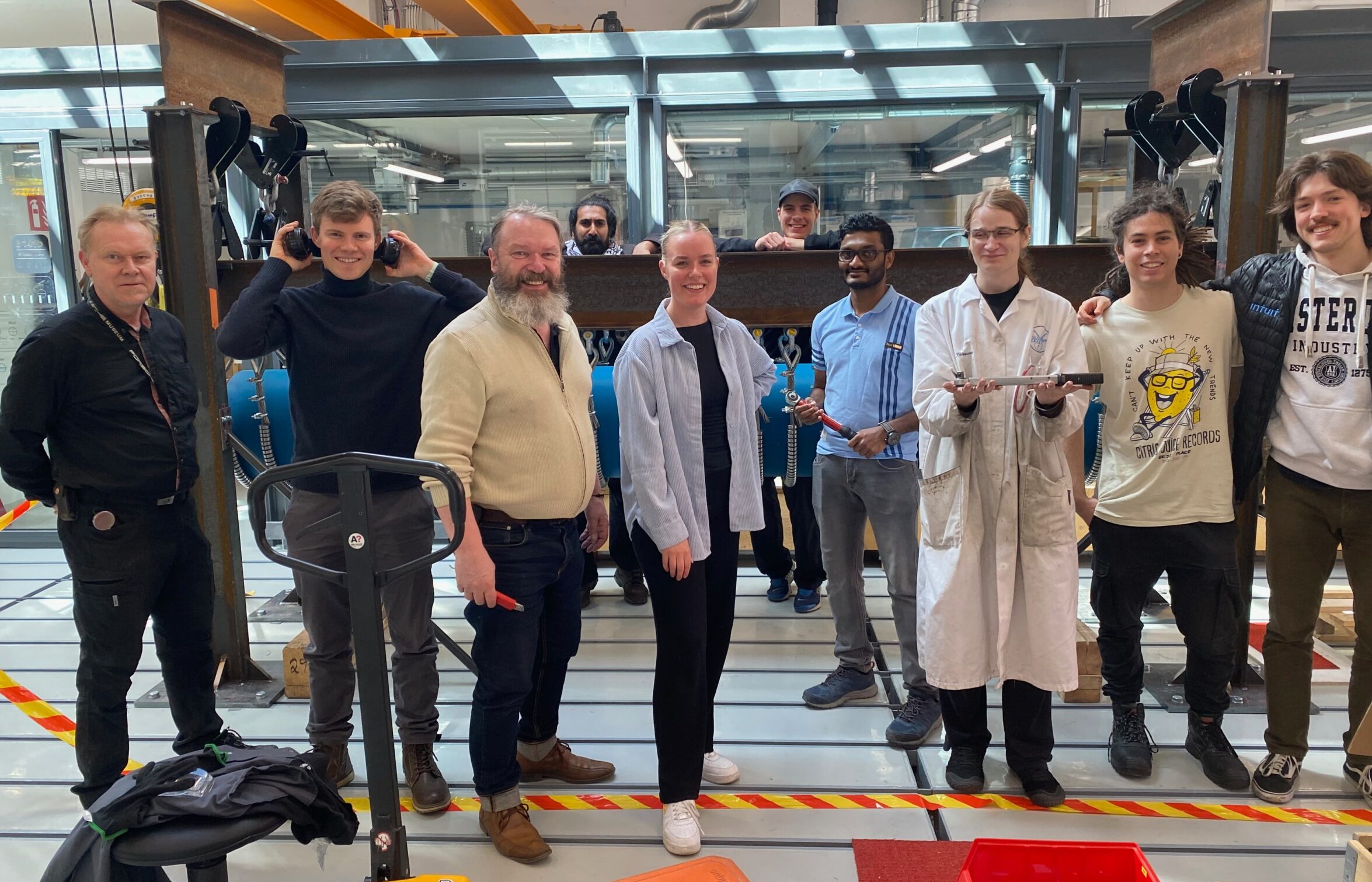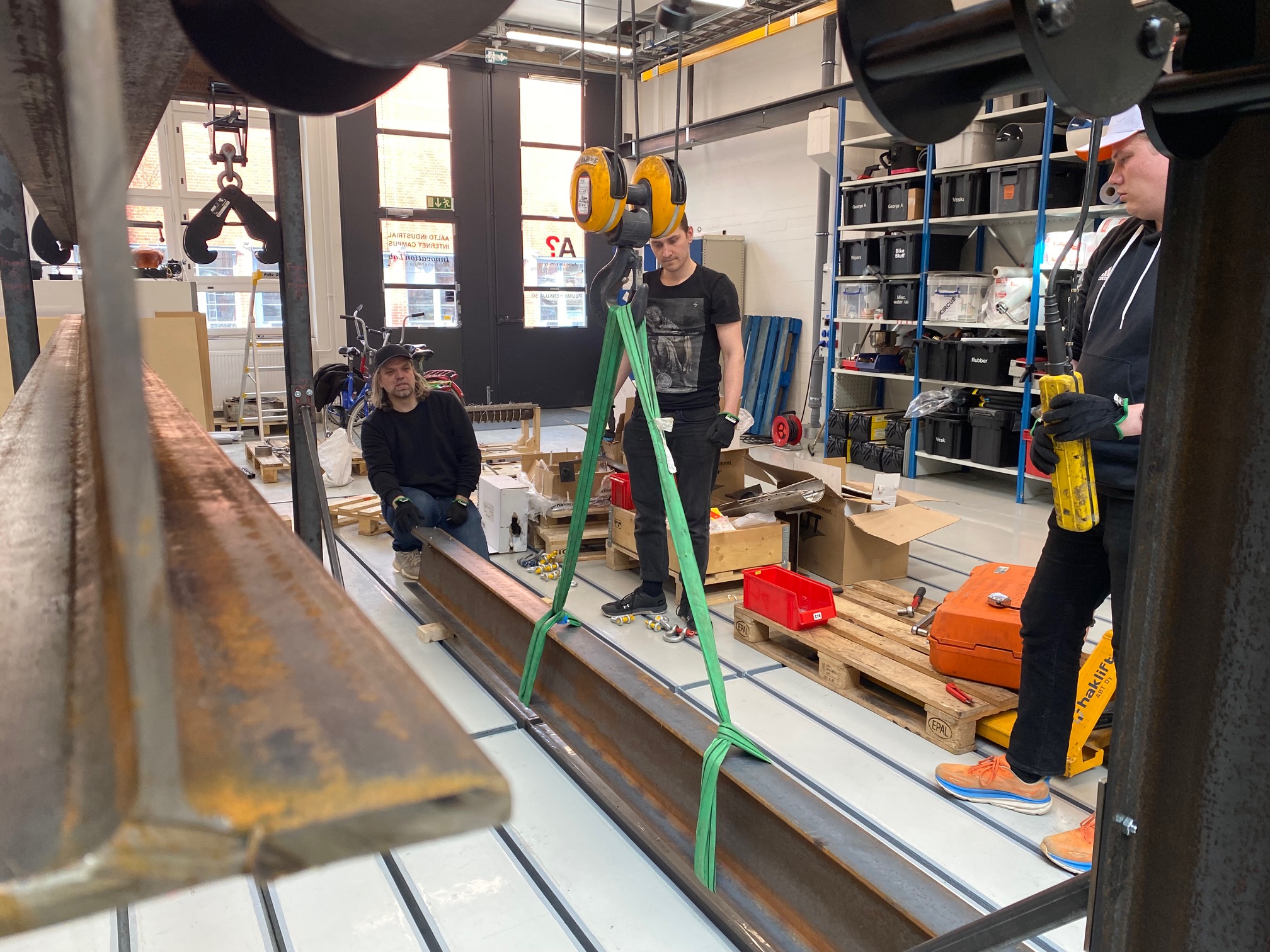Collaboration between Aalto University's Product Development Course and Oras Boosted Innovation and Strengthened Students’ Working Life Skills
Students from Aalto University’s product development course teamed up with faucet and shower manufacturer Oras to create practical solutions for sustainable water use in everyday life. The Erkki Paasikivi Foundation has supported these courses through research grants, allowing companies to allocate more resources to guiding students.
“You can get started in product development by reading books, but without real challenges and hands-on practice, the learning remains incomplete,” says Kalevi Ekman, Senior Advisor at Aalto University.
Having retired from his professorship in product development, Ekman has spent years developing Aalto’s interdisciplinary product development course (known as PDP – Product Development Project) to ensure it meets the needs of both students and working life.
In the product development course, students work in teams to solve real challenges provided by partner companies. In the previous round, one of the partner companies was Oras, a manufacturer of faucets and shower products. The students’ assignment focused on sustainable development and end-user water consumption.
Janne Rautavuori, VP of Business Development at Oras, and Jani Ingman, Head of Research and Product Development, were pleased with the students’ performance.
“The students did really well in the course and took great responsibility for their work,” Ingman praises.

The course mirrors real-life product development projects
The product development course begins with a challenge presented to the students by a partner company. The students then dive into the topic and the company’s operations, and work in teams to brainstorm solutions to the problem. These ideas are refined until the team succeeds in developing a prototype or concept.
“The course is a good simulation of a product development project in any company,” says Ingman.
Typical courses at Aalto are completed within a seven-week period, but the product development course runs throughout the entire academic year. The course instructors and the partner company support the students along the way, offering guidance throughout the process.
“In the early stages, the students came up with ideas ranging from realistic to wildly imaginative. Several were the kind where I could’ve immediately said, ‘It’ll take you about ten years to turn that into a concept,’” Rautavuori says.
“At Oras, we were very careful in how we guided the students. We tried to steer them, but we didn’t reject any ideas outright—the team was given quite a lot of independence. I think the teams were able to identify the most viable ideas and carry them through to the finish line.”
Sometimes the outcome of a project may simply be the realization that the team’s idea isn’t feasible due to financial or technological constraints. Even this is a valuable result that provides important learning for the team.
“Product development is always a bit of a risky business—you never know the exact outcome in advance. If the result were known from the start, nothing new would ever be created,” Ekman says.
“However, the one kind of risk we’re not willing to accept at the university is that someone passes the course without learning anything. But that doesn’t happen if the team has done their best, taken initiative, and accepted the support offered to them.”
The product development course culminates in a final presentation day open to the public, where the teams showcase their work to a wide audience—including students, university staff, past and future company partners, and often also media and decision-makers. Since the presentation day is set from the very beginning of the course, students are highly motivated to complete their work by then.
The foundation’s funding frees up company resources for guiding students
The Erkki Paasikivi Foundation has awarded research grants to Aalto’s product development courses focused on clean water. The funding covers, for example, material and other expenses. As a result, partner companies are able to dedicate more of their resources and expertise to guiding students.
“From a company’s perspective, having someone else cover the costs related to the students is appealing. That way, the company can focus on defining the challenge in detail and guiding the students,” Rautavuori explains.
Young people bring fresh thinking to companies and gain valuable working life skills
The fresh thinking brought by the students has been very welcome at Oras.
“I think the students are the greatest asset we gain from this collaboration. We’re used to working with all kinds of professionals—architects, BSE designers, and plumbers, some of whom have been in the industry for 30 years. But none of those professionals could have come up with the kinds of ideas these young people can!” Rautavuori praises.
The students, in turn, gain important working life skills, such as collaborating in multidisciplinary teams and working with different kinds of people. Many students also develop a clearer understanding of themselves and their own strengths over the course of the project.
“For a young person, it can be a real confidence boost to realize that their idea can actually lead to something. Or a motivational boost when they think, ‘I’ve studied for four years and still feel like I don’t know anything.’ That realization can give them the push they need to really finish strong in their studies,” Ekman says.
One of the teams in the most recent course held in collaboration with Oras came up with an idea that led to a patent application, and one of the students stayed on at Oras to complete their master’s thesis. In addition to these highlights, the product development course once again produced around a hundred new young talents ready to take on the challenges of future product development.



